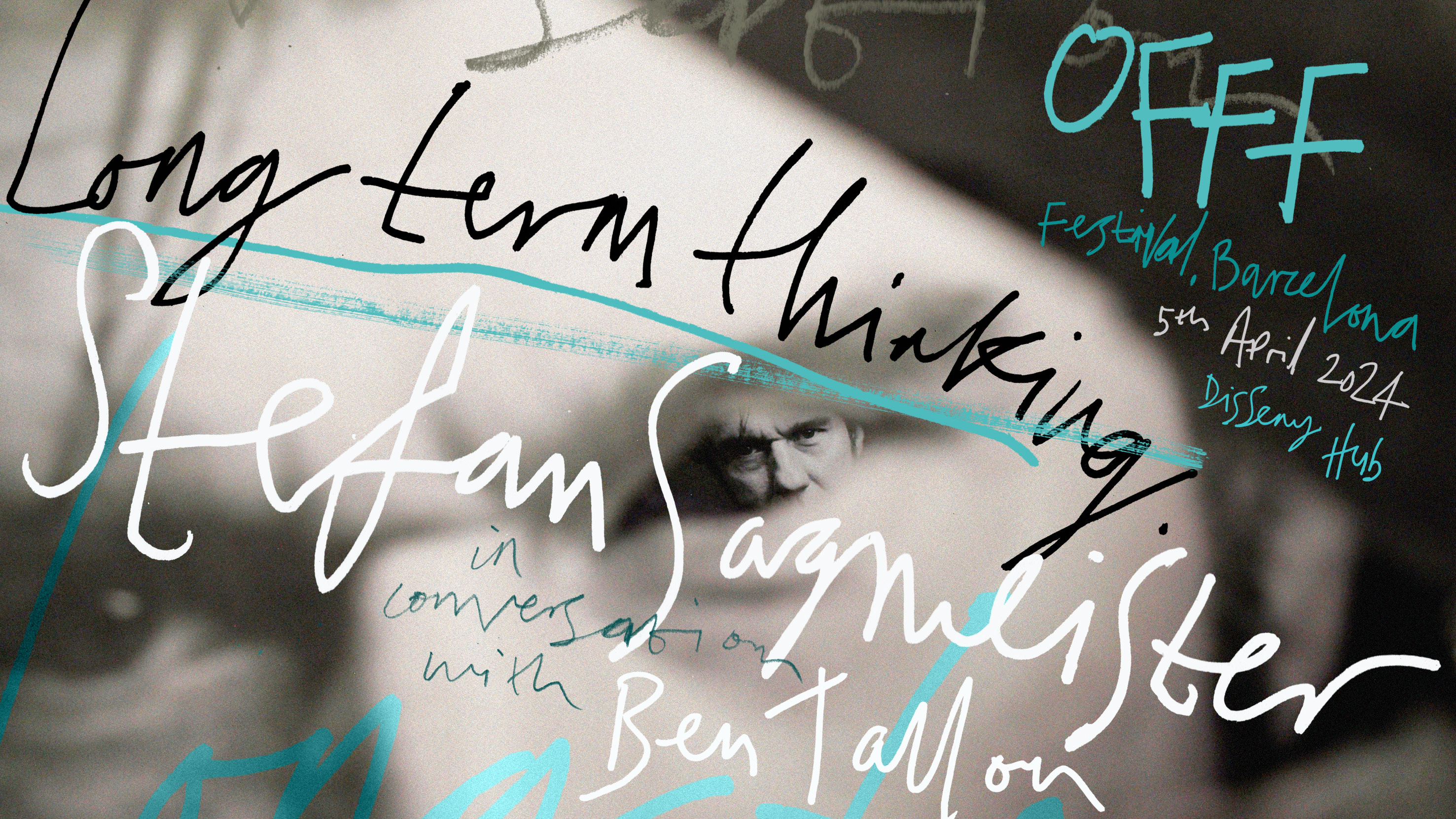
I’ve long wondered what’s going on inside this head of mine. Thanks to the family, friends, and peers who celebrate and enable my imagination, I’ve managed to use my different ways of thinking to build and sustain a 16-year and counting full-time career as an illustrator, author and host of The Creative Condition podcast.
But there’s a well-documented downside to high sensitivity that makes us a good fit for the creative industry: it can also lead us into dark places. 24-hour news cycles are designed to keep us alarmed and panicked; sharing, shouting, and coming back for more. As a new parent suffering constant fatigue, I found myself caught in this digital web, experiencing far too many negative thought loops than I should.
It was a heavy burden and my creativity suffered, so, I made a conscious effort to better understand the way my brain worked to build resilience and return to an optimistic baseline. Here are some tips from my findings (also see our tips for beating creative block).
01. Think long term
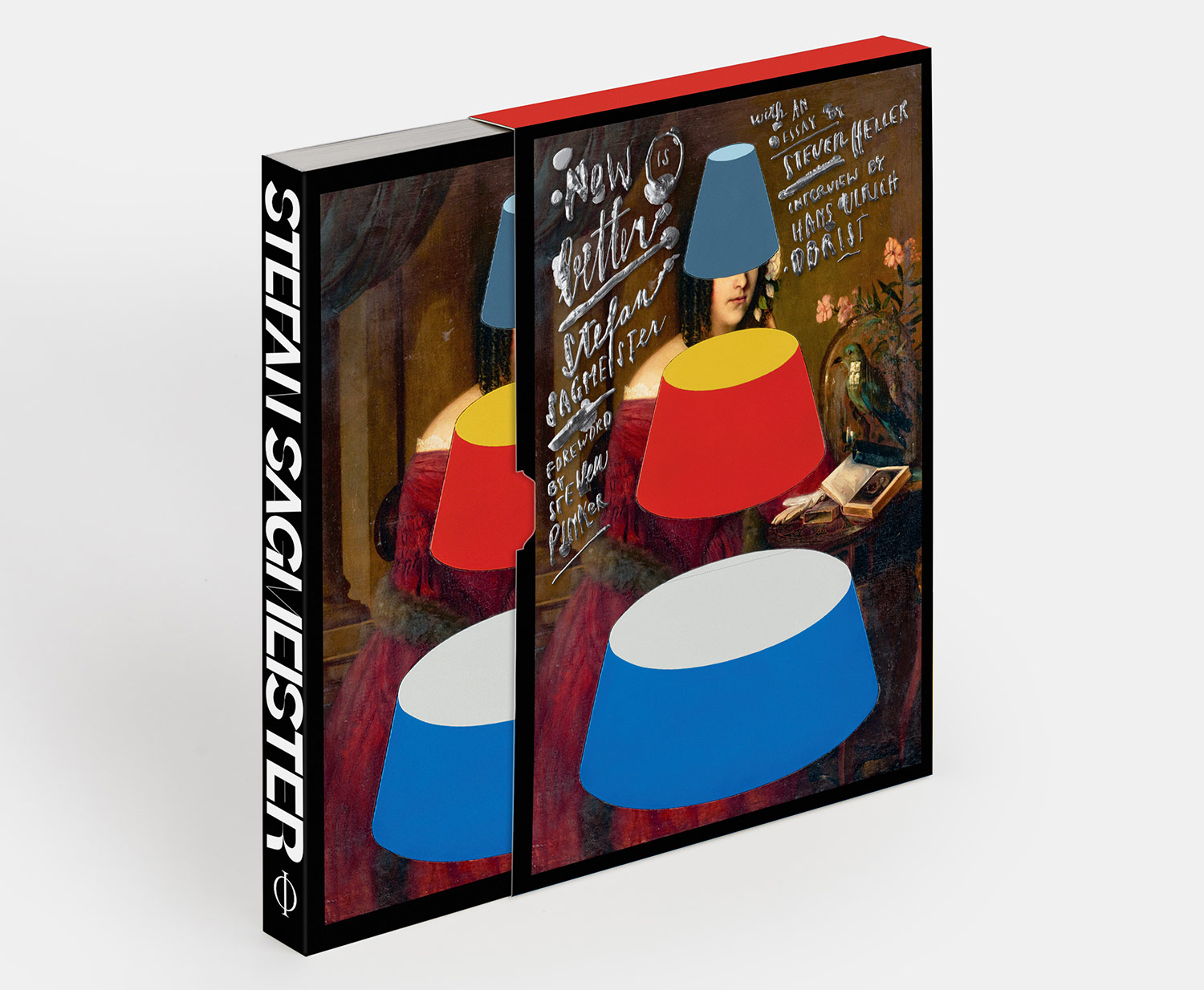
Stefan Sagmeister’s Now Is Better was a huge turning point for me. In my exhausted and vulnerable state, one heavy headline was enough to kick off the panic and write off an entire day, and sometimes days. Our brains have evolved to identify potential threats, which is why we gravitate to the negative stuff and bypass the positives. When you smash this together with the relentless white noise of social media – a digital landscape far removed from the environments in which this trait evolved – the result is hugely damaging for our mental health, and consequently, creativity. I’d learned this, and saw the futility of my doom-scrolling.
I started to micro-manage my thought patterns, cracking down on my brain’s triggering of the fight or flight instinct; a hard-wired high-stress response to what our brain identifies a potential threat which takes a huge psychological and physical toll on us if we enter it consistently. Then, along came Now Is Better, which sits atop my coffee table, a readily-available tonic on those dark, rainy mornings.
Stefan’s project is a 6 year-long, data driven, artistically stunning body of work made to encourage us to take a longer-term view of human history. By doing so, and recognising our many advancements and past successes as a species, we can better tackle our current collective problems from a place of optimism.
Stefan and I talked at length on episode 199 of The Creative Condition podcast – where he detailed why on so many levels, as the title suggests, despite our problems, now is a better time to be alive than any previous time in human history. It is a conversation, idea, and project that has genuinely changed my life and significantly improved my creativity.
02. Audit your foundations
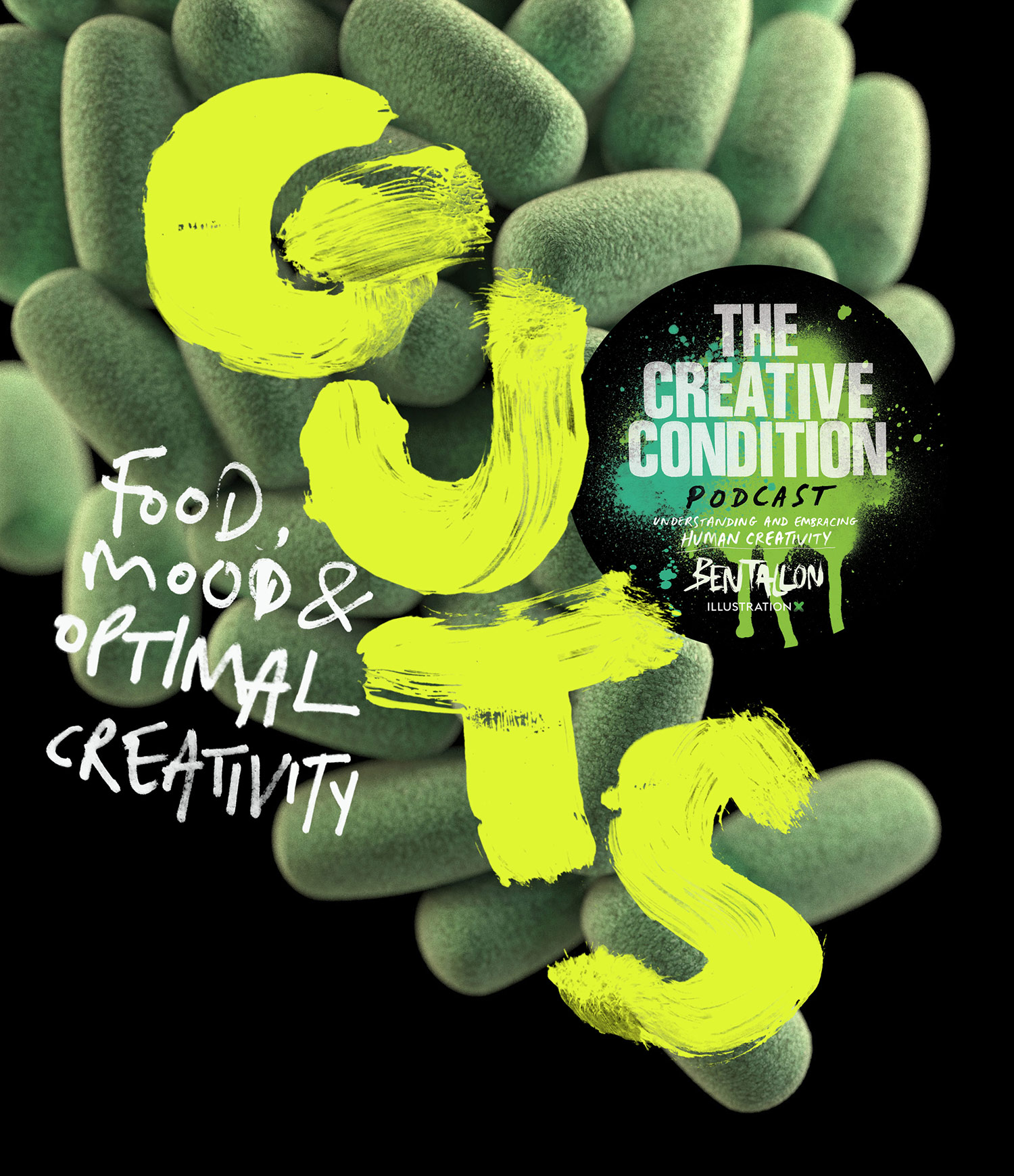
In society, creativity is too often framed as a special gift of genius belonging only to the artistically gifted. The truth is, it is an inherent human trait. We simply are creative. But it takes constant work to develop and use it effectively. If we slump into that office chair feeling sluggish, jaded, and overwhelmed, then it’s going to be a challenge to tap into those beautiful flow states in which we make magic.
We don’t always consider the human organism as one cohesive centre for creativity. The body and mind are one, and if the former is not fed, rested, and well-maintained, the latter cannot do its job well. On episodes 202 and 204 of The Creative Condition podcast, and for the new book, I talked to psychologist Kimberley Wilson and Polish microbiologist Zuzanna Karwowska. This followed an audit of my diet; particularly my lunch, following far too many naps.
The personal slump Stefan Sagmeister’s work had helped to improve was also part-remedied with a shift away from a daily beige plate full, to something more colourful, with plenty of green leaves and a much-needed, long overdue ban on sugary nonsense. The sustainable energy boost took me by surprise. It’s not that I was climbing the walls or doing flips, but the all too compulsory nap became a choice, and I noticed a brighter outlook most days. Awareness is slowly improving, but our diets continue to be overlooked as a vital cog in our mental and physical wellbeing, and of course happiness. This is one massive change that can be made immediately.
03. Find personal focus for your demons
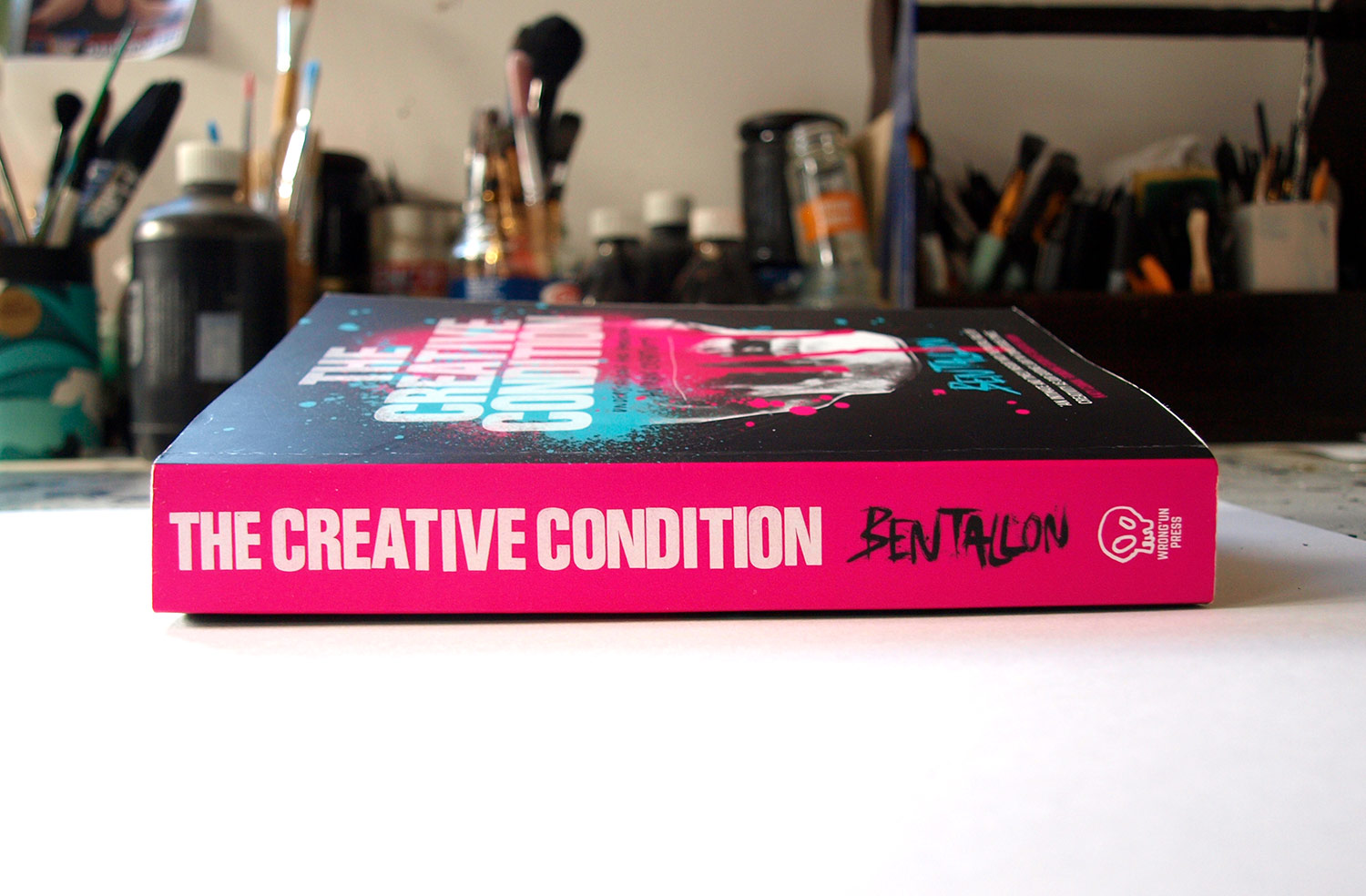
At my lowest, I was a part of the problem. I’d react to headlines without reading articles, and clumsily share them, no doubt alarming shoals of people who followed me for far more wholesome reasons than to be stung by tweet-sized misery wasps. There are always noble causes because there are always collective problems, and there is value to sharing the right, considered amount of activism on social media, but there’s a risk of placing far too much stock on these dangerously transient platforms resulting in diminishing returns.
Writing to local MPs, donating to organisations who can reach people, places, and battles we cannot, joining local communities and protesting in person are a few surface level alternatives, but never overlook the many benefits of placing the utmost value in using your personality, your feelings, your strengths unique skills to gauging the worth and shape of your contribution to a better world.
While researching and writing The Creative Condition over the last decade, it took me a little too long to recognise that a singular cause could reach much further than my panicked, scattergun flitting from tweet to sharing petitions to surface-level singular artworks ever could.
While researching and writing The Creative Condition over the last decade, it took me a little too long to recognise that a singular cause could reach much further than my panicked,Across 250+ podcast episodes, I have learned from the broadest range of people and professions than I could ever have imagined: ex-convicts, firefighters, neuroscientists, psychologists, artists, teachers, Olympic gold medal winners, secure children’s institute workers, time trial racers and colour psychologists to name a few.
And through my podcast, writing, daily dog walk conversations, and efforts to help anyone who’ll listen, I package my findings in a way that will gradually improve the understanding and implementation of creativity in our society. The same creativity that has helped us survive on this earth. Recognising my own limitations as one person, and the validity of this pillar of human happiness was another important step in my return to a healthier mood. In one instance, despite my extremely moderate listenership, my episode with Stefan Sagmeister led to a Ukrainian translation of Now Is Better.
In a later episode, Ukrainian design activist, and illustrator Olya Protasova resolutely told me why now is better, even while her country is at war, and why it is vital that the Ukrainian creative community fight to stay positive, and use creativity on every level despite looming violence. We cannot ever know where these personal causes of ours will lead us, nor should we try, but the purpose and direction they bring us is crucial catharsis in tumultuous times and, will routinely shock you in the unpredictable positive impacts beyond your control.
04. Get out and get together
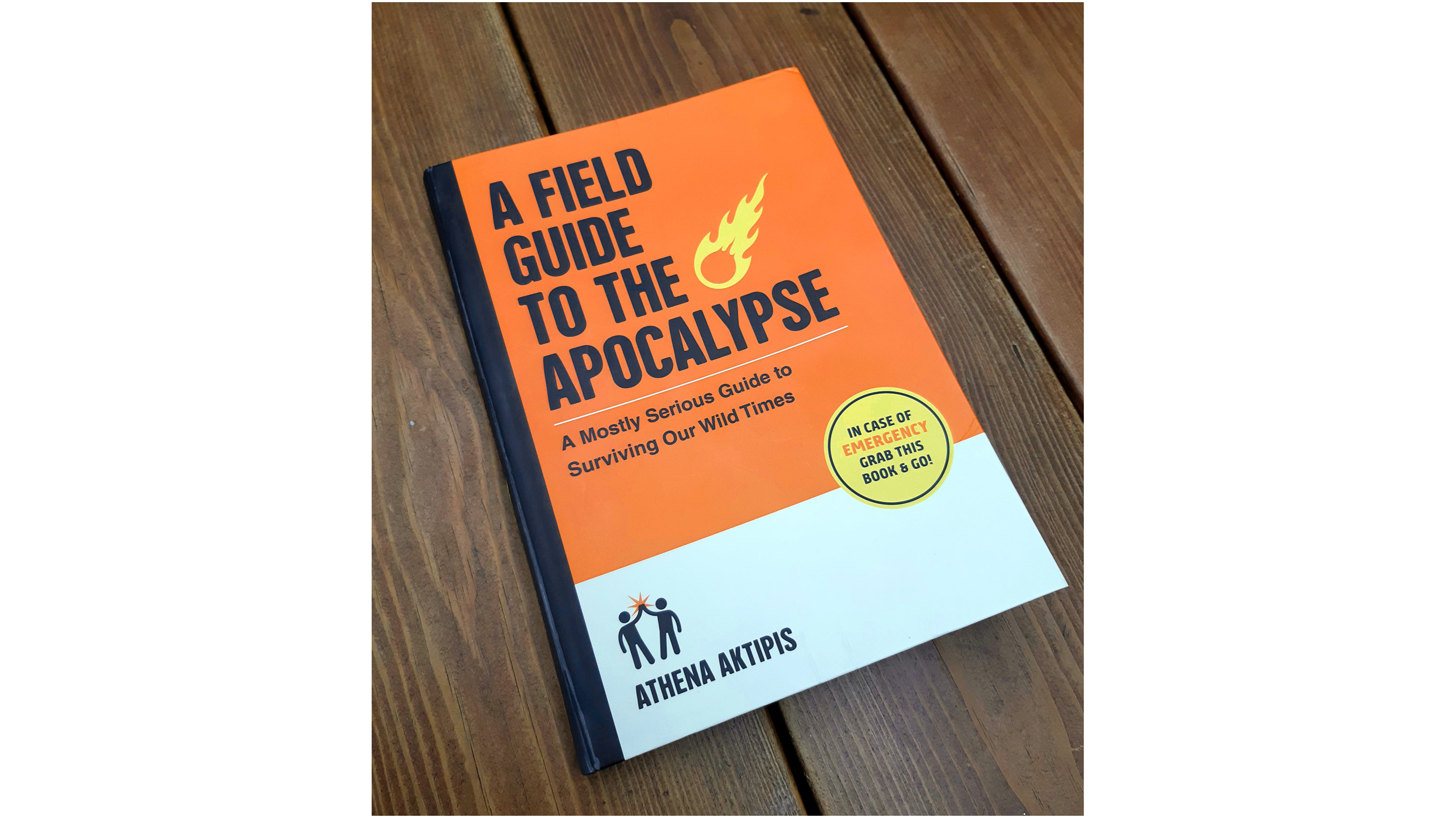
Associate professor at Arizona State University, Athena Aktipis has written a brilliant new book called A Field Guide to the Apocalypse. Through an enviably smart creative lens, using humour, great illustrations (by Neil Smith), and a great sense of fun, Athena addresses the rather serious topic of how humans behave in times of great adversity, from personal apocalypses (flooded house or fire, for example) to large scale pandemics or natural disasters. We talked last week for an upcoming episode of The Creative Condition and the overriding theme in our chat was community, creativity, and the joy of shared risk management.
I learned that our need to be loved – crucially for who we are – is evolutionary, emanating from times when our shared risk-management and belonging to groups would heighten our chances of survival. Social media very cynically taps into this, and provides a vacuous, destructive substitute that tends to cut us off from the tribes that keep us sane. Athena, in what I feel is a close to genius tactic, uses the zombie apocalypse and assembling your ‘z-team’ as a model for recognising your personal and collective vulnerabilities, strengths, and mapping out your local community.
The next day when I mentioned my chat with Athena to a dog-walking friend, I learned that he can hunt, garden, engineer, and possesses many of the basic skills that I surrendered when I opened Photoshop for the first time. That said, he has me on his team because of my imagination and height, so, all is not lost. But seriously, our bond is now deeper knowing that when the groans begin, we’re in it together. In short, no matter where you land on the introvert/extrovert spectrum, we are a social animal, and in-person positive relationships is a mandatory species requirement, essential for good physical and mental health, and of course, inspiration and creativity.
05. Get idle
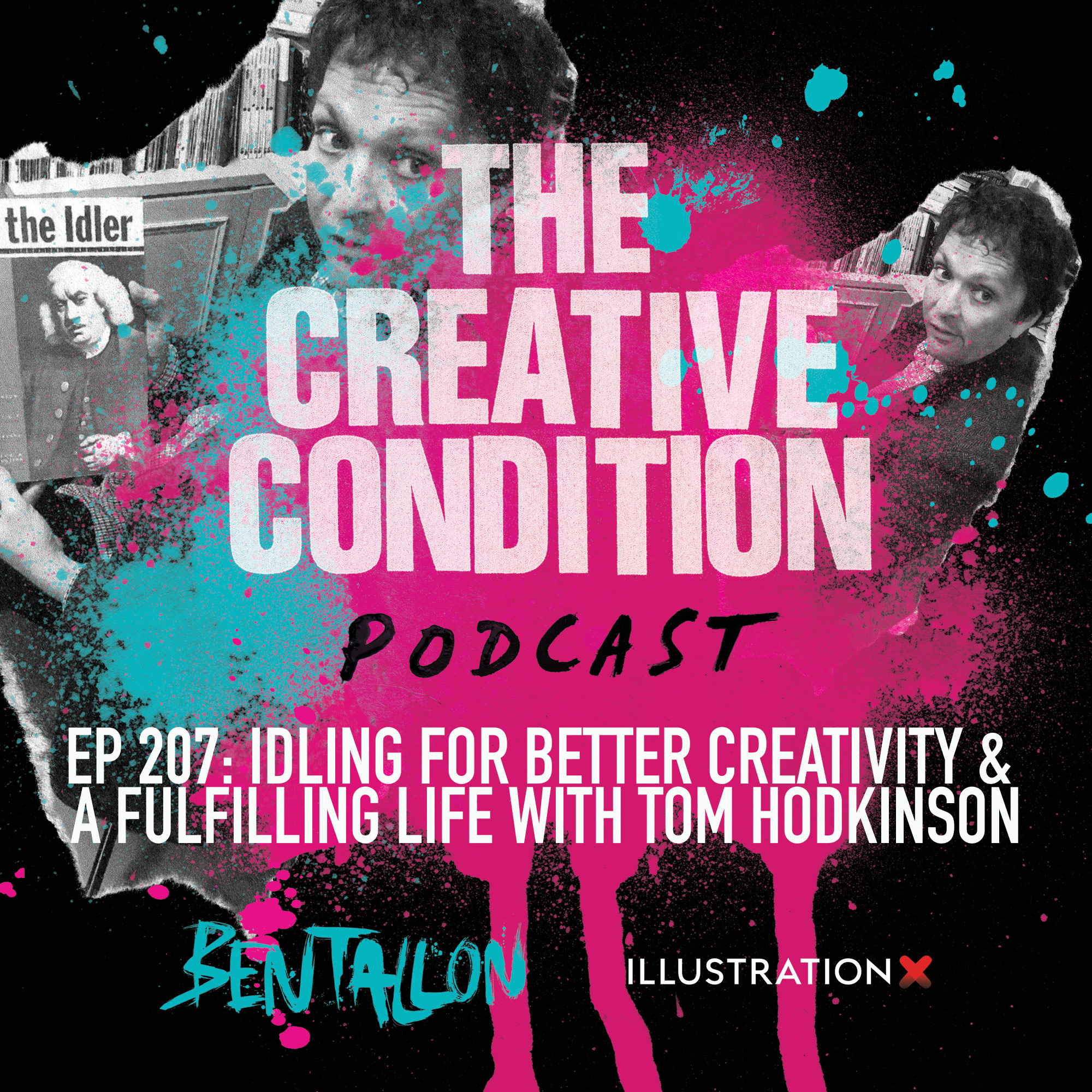
For the 200th episode of The Creative Condition I talked to Jenn Granneman, a thought leader in introversion and sensitivity. Her book Sensitive: The Power of a Thoughtful Mind in an Overwhelming World is must-read, particularly for those of you, who, like I, feel those highs and lows at full intensity. In the book there’s an excerpt that highlights the severity of our ‘too much’ lifestyles by sharing an excerpt from a book written at the turn of the 20th century cautioning that the human mind has not evolved to deal with the rampant noise of industrialisation, cities, and intensifying agriculture.
If that person were here today, their head would likely pop. We are constantly overwhelmed with information, and the pace we’re living at is playing a big part in what some people predict will become a global mental health crisis. In an effort to combat this, I subscribed to Idler magazine, which promotes a slower, more considered, contemplative pace of life, and with my subscription, received editor Tom Hodkinson’s fantastic An Idler’s Manual which is packed with easily actionable tips we can all benefit from at any time.
We later talked on episode 207 of The Creative Condition and dug down into idling, but it is well documented that without rest, active downtime, and headspace, the unconscious mind – responsible for those beautiful ‘where did that come from’ ideas – cannot do its job, and we burn out, leading to much unhappiness and an absence of creative motivation.
Ben will be live in conversation with Stefan Sagmeister on the Roots stage at OFFF Barcelona on Friday 5 April at 6.45pm.







